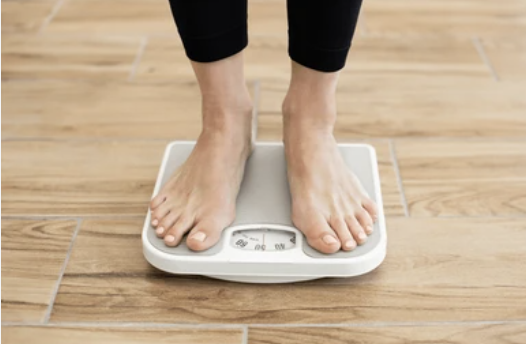The Unexpected Risks of Being Too Thin After 50
/When I was growing up, women were taught that they could never be too thin and that “nothing tastes as good as skinny feels.” This “thin is best” viewpoint has dominated for decades, and it certainly made a lasting impact during my childhood and teenage years. But as I got older and learned more about fitness and longevity, I realized just how damaging this belief really is.
Aside from the serious psychological issues that arise from society expecting all women to be stick thin (think eating disorders, body dysmorphia, and more), the long-term physical effects can be debilitating. And now, in the age of weight loss drugs and surgeries, I want to make sure we’re all aware of the many health issues that can stem from becoming too thin – particularly through restrictive approaches to weight loss. Maintaining a healthy weight is important at any age, but as women over 50 and 60, it behooves us to understand the risks of losing too much weight.
The Risks of Being Too Thin
Being of a healthy weight and being underweight are two very different states. The CDC defines underweight as a BMI that is under 18.5. In contrast, a normal weight BMI ranges from 18.5 to 24.9. Now, while I do take issue with BMI and think that using your waistline measurement and waist-to-hip ratio is a much more accurate barometer of your health, it’s the most widely used measurement of weight, and it can certainly indicate whether you’ve fallen into underweight territory.
Now, you may wonder why that matters. What’s the harm in being thin? Actually, there’s a lot of potential harm – just as there’s harm in being overweight.
1. Osteoporosis
Osteoporosis is a disease characterized by the weakening of bone overtime, through the loss of bone density. As we age, our bones get thinner and more breakable, meaning we’re at an increased risk of injury and impaired mobility. Menopause has been shown to accelerate bone loss, and the same goes for being underweight. Being underweight is a risk factor for osteoporosis, and per this study, it’s strongly associated with vertebral fractures in the elderly.
2. Muscle Loss
Muscle mass also naturally declines as we age, unless we take measures to preserve it, like strength training. And as we lose muscle mass, we become at risk for sarcopenic obesity – which is when age-related muscle loss meets high body fat percentage. When we don’t have much muscle, our metabolisms slow down, we lose our mobility, and in general, we become more frail. Having too low of a body weight can also be a factor, because the conditions that lead to someone being very underweight are conditions that accelerate muscle loss. Eating a super low calorie diet (especially one that’s low in protein), overexercising, exercising without refueling, and not engaging in strength training all result in rapid muscle loss.
3. Nutritional Deficiencies
When you heavily restrict your diet, or eat diet foods that lack nutritional value, you may be missing out on key nutrients that your body needs to thrive. By the same token, a restrictive diet doesn’t support a healthy gut, and if you have a weak gut lining or microbiome imbalances, it’s possible that your body won’t absorb the nutrients you give it, anyway. Nutritional deficiencies can cause a wide spectrum of issues, from low energy, fatigue, and mood swings, to serious medical conditions.
4. Hormonal Imbalances
Menopause alone causes massive hormonal shifts – add being underweight to that, and you’re looking at full-on endocrine disruption. Just as younger women who are underweight can lose their periods due to hormonal imbalances, older women can experience unpleasant side effects like irregular sleep, low energy, constipation, hot flashes, joint pain, and muscle stiffness.
5. Weakened Immune System
Underweight individuals rarely have good immune systems, making them more susceptible to infections and illnesses. Our immune systems need energy (in the form of food) to function, and when we incur infections, our bodies undergo a lot of metabolic activity to fight it off. In other words, being underweight means you have a higher likelihood of getting sick in the first place, plus your body will have a tougher time getting rid of it.
The Benefits of Having Lean Muscle
Achieving a healthy weight really does require striking a balance – with your diet, with your mental health, with your exercise routine, and with your physical and mental stress levels. But the benefits of having lean muscle mass and strength cannot be overstated. These are two of the most important factors in longevity – they help prevent injury, improve your metabolism, and enhance your quality of life. So with that in mind, here are the articles of mine I recommend reading (or rereading). Together, they will help you set healthy weight goals and achieve a balanced approach to health and aging.
For Your Diet:
For Your Bone Density & Muscle Mass:
For Your Mental Health:
For Your Longevity:
Wherever you are in your weight and health journey, I am here to support you. I am so excited for 2025, which I’m deeming the year of longevity. Stick with me, and we’ll get you where you want to be.
Xo,
Renata

